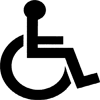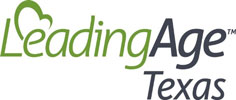your questions, answered!

INDEPENDENT LIVING FAQ
WHY CHOOSE INDEPENDENT LIVING IF I CAN STAY IN MY HOME?

Living alone may result in low social interaction, which is proven to be extremely hard on your health. In contrast, Woodland Creek at The Crossings offers a community of friends, social interactions and meaningful activities. If you don’t want to cook, you can arrange to have all your meals and snacks made to order in our restaurant and at the Bistro. And if your family worries about your safety, we have staff on-site 24/7.
CAN MY GRANDCHILDREN, FAMILY AND FRIENDS VISIT?
Guests are always welcome in your home and are more than welcome to enjoy recreational facilities, dining, amenities and activities with you. In addition, we have guest rooms that can be reserved and rented for family, friends and prospective elders.
ARE PETS ALLOWED?

Yes! They’re family too! We’re a pet-friendly campus and welcome dogs, cats, birds and fish upon approval. Be sure to ask about the pet policy and approval process when you visit.
WILL I HAVE A VOICE IN MY COMMUNITY?
We encourage our elders to participate in the community’s elder council. Elders can actively participate in decisions that affect programming, dining, activities, outings and more.
LIFE CARE FAQ
DO I OWN MY INDEPENDENT LIVING APARTMENT HOME?
Call it the best of both worlds. Your refundable entrance deposit will make living here feel like a safe investment – much like owning your own home. But on the other hand, because maintenance is provided, you’ll discover the simple joy of maintenance-provided living, where you call, and we grab our tool belt and come runnin’. The Crossings owns and maintains the property, and you reside there as long as you can live independently. Plus, because you aren’t the homeowner, you won’t pay property taxes or property insurance.
WHAT WILL I PAY TO ENTER THE COMMUNITY?
Your entrance deposit will be competitive with Bay Area home values. There is more than one Life Care plan, and depending on the plan you select, your entrance deposit may be up to 90% refundable when you leave. Sound like estate protection? It is.
HOW IS MY MONTHLY FEE CALCULATED?
Your monthly service fee will be competitive with those at other communities in the Bay Area. The fee is determined by the apartment home you choose. What’s more, a portion of your monthly service fee can be tax-deductible as a medical expense – we’ll give you the amount, and you can check with your tax advisor.
WHAT IF I LIVE TO BE 111 AND I RUN OUT OF SAVINGS? TELL ME THE TRUTH, PLEASE.
We’ve never evicted a resident for non-payment due to no fault of their own (long life isn’t a fault), and we don’t intend to start now. You’re welcome to call us to discuss how we’ve handled this in the past. We’ll explain how our Resident Covenant Fund, which is supported by contributions from generous donors, can support those residents whose financial resources become depleted.
HEALTH SERVICES FAQ
HOW DO I KNOW WHICH LEVEL OF LIVING IS THE RIGHT CHOICE?

When you think your loved one may need more assistance than Independent Living provides, we recommend you seek guidance from a physician. Our professional team will meet with you and your loved one to answer questions and provide information regarding the various types of housing and services available on our campus, enabling you to reach the best decision for your loved one and your family.
WHAT’S ASSISTED LIVING?
Our Assisted Living options are ideal for people who can still live independently but need extra assistance with daily tasks – taking medication, bathing, dressing, meals, housekeeping, transportation and other everyday needs. A trained licensed nurse and certified nurse aides are available 24/7 to provide an individualized level of support, while helping your loved one preserve an active lifestyle filled with friends, neighbors and family.
What’s Memory Support?
Memory Support is much like Assisted Living where daily needs like medication management, bathing, dressing, meals, housekeeping, transportation and other everyday needs are met, but in an environment that is specially designed for the safety and support of those living with memory loss. One of the biggest differences is that the staff in this neighborhood are specially trained on how to offer therapeutic redirection when needed along with daily activities that leave the elder feeling empowered and engaged rather than frustrated and discouraged.
WHAT’S A Long-term care NEIGHBORHOOD?
In a Long-term care neighborhood, elders who require intensive therapies to manage well-being and health receive professional, compassionate support from licensed medical professionals, including RNs, LPNs, certified nurse aides and certified medication aides. We also offer custom programs that encourage maximum social interaction and preserve dignity.
WHO WILL BE INVOLVED IN MY short-term REHABILITATION?
Rehabilitation is short-term Skilled Nursing for those who need greater care while recovering from a hospital stay, and those recovering from illness, injury, surgery, or stroke. Your team will include a doctor, nurse, social worker, and dietician, together with therapists who’ll provide care, guide the rehabilitation process, and work in partnership with you and your family members.
ASSISTED LIVING FAQ
ARE THE APARTMENT HOMES FURNISHED?
No. You have the freedom to furnish and decorate any way you wish. Bring treasured furniture and belongings or make a fresh start with new pieces that make everyday living even more comfortable.
DO YOU OFFER ACTIVITIES?
Yes! Each day is filled with opportunities to build new friendships through activity choices, socials and entertainment, as well as access to life-enriching services and amenities around the community.
ARE THERE OPPORTUNITIES TO GET OUT AND ABOUT?
Absolutely! In addition to private transportation services for physician visits and other needs, there are frequent group shopping, dining and entertainment excursions to many popular off-campus venues.
WHAT IF I OR MY LOVED ONE NEEDS MORE HELP THAN CAN BE PROVIDED IN ASSISTED LIVING?
As a CCRC (Continuing Care Retirement Community), we offer a continuum of care. In addition to Assisted Living, we provide Memory Support, Skilled Nursing and Rehab. These programs provide round-the-clock care for elders who are recovering from illness or injury, or who need more long-term supervision or support.
MEMORY CARE FAQ
HOW IS MEMORY SUPPORT DIFFERENT FROM ASSISTED LIVING?

Memory loss, whether from Alzheimer’s or other forms of dementia, affects more than just one person. So care provided at The Crossings – from dining to staffing to activities – is designed around the needs of memory loss. Specially trained professionals work together with the elder and their family members to create structure, familiar schedules and surroundings, all in a secure and uniquely safe environment that promotes purpose and celebrates accomplishments.
WHAT’S THE DIFFERENCE BETWEEN DEMENTIA AND ALZHEIMER’S DISEASE?
Dementia refers to the loss of cognitive functions (thinking, reasoning, the ability to remember) that are severe enough to interfere with daily functioning. Dementia itself isn’t a disease, though it often accompanies diseases like Alzheimer’s. Dementia is irreversible when caused by disease or certain injuries. It may be partially or fully reversible when caused by drugs, alcohol, depression or imbalances in substances such as hormones or vitamins. In contrast, Alzheimer’s disease is responsible for 60%-80% of dementia, per WebMD and others. It’s a progressive, degenerative brain disease that affects parts of the brain that control thought, memory and language. 1 in 8 people over age 65 has Alzheimer’s, which affects women more than men.
IS MEMORY SUPPORT STAFF SPECIALLY TRAINED?
Yes, those who provide services in this specialized area are people with a knack for working with Memory Support elders. Carefully selected and trained Memory Support staff members are person-centered to a very high degree. These caregivers have a certain compassionate temperament, together with exceptional patience, gentleness, and a passion for consistently providing dignified and respectful care to our Memory Support elders and their families.
Long-term care FAQ
HOW DO I KNOW IF I OR MY LOVED ONE NEEDS long-term care?
Skilled Nursing is needed when there’s acute illness not requiring hospitalization, but when home care and outpatient care are inadequate. Some conditions that often require Skilled Nursing include:
- Cardiac failure
- COPD (chronic obstructive pulmonary disease)
- Congestive heart failure
- Diabetes
- Parkinson’s disease
- Severe osteoarthritis
- Stroke
- Other major illness
WHAT’S SHORT-TERM AND WHAT’S LONG-TERM SKILLED NURSING?
Ordinarily, short-term Skilled Nursing, or short-term rehabilitation, refers to treatment which, when completed, results in the elder returning home. That’s Rehabilitation, a set of services provided within the Skilled Nursing area. Long-term Skilled Nursing, or Long-term care, is for the prolonged need for supportive care.
WHAT INFORMATION DO I NEED TO ASSEMBLE?
To make the most effective treatment plan ASAP, please provide this information when you come:
- Health insurance, with policy numbers of private medical insurance, prescription plan, Medicare/Medicaid, long-term care insurance, plus vision and dental (if applicable).
- Medical information, with doctor and pharmacy contact, medical diagnoses, allergies and drug sensitivities, health history, and a health event log with hospitalizations, surgeries and major health events (if any).
- Medications, including (for each) the name, dosage, how and when to take it, why it was prescribed, start and stop dates, whether monitoring is required, the doctor who prescribed it and if there are any side effects.
- If you hold your loved one’s Durable Power of Attorney for Health Care, bring a copy. If you have a copy of their advance medical directives, such as a Do Not Resuscitate order (DNR) or a Physician Orders for Life-Sustaining Treatment form (POLST), please bring it.
short-term REHABILITATION FAQ
WHAT TYPES OF THERAPIES DO YOU OFFER?

Physical therapy helps you regain strength, mobility, and balance. Occupational therapy, aimed at improving the ability to perform everyday tasks. And speech therapy, to enhance communication, and eating or swallowing skills. Among our specialties are IV therapy, wound care, and respiratory.
HOW DOES OCCUPATIONAL THERAPY DIFFER FROM PHYSICAL THERAPY?
Though similar in terms of helping to restore strength and mobility, occupational therapy helps you adapt to your social and physical environment through training or retraining (when necessary) in areas such as dressing, bathing, eating and grooming; activities for memory, orientation and cognitive integration; and exercises to maintain normal joint movement to reduce the effects of arthritis or other conditions.
WHAT CAN I EXPECT FROM SPEECH THERAPY?
Our skilled speech and language pathologists address a major concern that can emerge with aging in addition to communication issues, which is swallowing dysfunction. You’ll have treatment plans designed to help with your specific degree of language ability, give precise alternate communication strategies and, when appropriate, provide diet recommendations.
HOW OFTEN WILL I RECEIVE THERAPY SERVICES?
Your treatment plan will be individualized to address your condition and specific rehabilitation needs, based on medical certification by your doctor. After admission, the therapy team will meet to review your treatment plan and recommend a schedule of appropriate services. It would not be unusual for a healthy postoperative 64-year-old woman (for example, after a hip replacement) to have an hour of physical and occupational therapy every day, 6 times per week, for 3 weeks. On the other hand, a frail 88-year-old man recovering from the same surgery, with complications, might recover much more slowly, and a schedule of 20 minutes per day, alternating days if he gets too tired, may be more appropriate. We’ll work quite closely with the most important person on the team: you.
WHO’LL BE INVOLVED IN EACH ELDER’S CARE?
The team includes a doctor, nurse, social worker, dietician and appropriate therapists who’ll provide care, guide the rehabilitation process, and work in partnership with the elder – and often very successfully together with family members as well.










